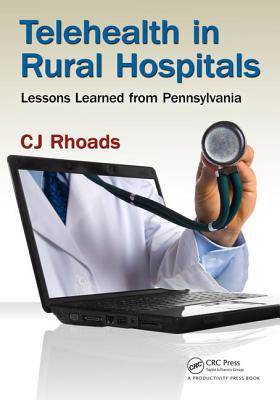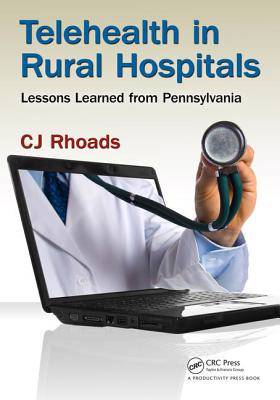
- Retrait gratuit dans votre magasin Club
- 7.000.000 titres dans notre catalogue
- Payer en toute sécurité
- Toujours un magasin près de chez vous
- Retrait gratuit dans votre magasin Club
- 7.000.0000 titres dans notre catalogue
- Payer en toute sécurité
- Toujours un magasin près de chez vous
Description
Improving the quality of healthcare, while increasing accessibility and lowering costs, is a complex dilemma facing rural communities around the world. The Center for Rural Pennsylvania believed that telehealth, the use of electronic information and telecommunications technologies to support long-distance clinical healthcare was a viable solution so it recently provided grants to conduct a thorough investigation into the factors involved.
Telehealth in Rural Hospitals: Lessons Learned from Pennsylvania reports the outcome of this year-long investigation. Illustrating telehealth implementations in rural settings, it supplies an overview of telehealth as well as an assessment of its economic impact.
Spécifications
Parties prenantes
- Auteur(s) :
- Editeur:
Contenu
- Nombre de pages :
- 336
- Langue:
- Anglais
Caractéristiques
- EAN:
- 9781498724357
- Date de parution :
- 24-11-15
- Format:
- Livre broché
- Format numérique:
- Trade paperback (VS)
- Dimensions :
- 178 mm x 254 mm
- Poids :
- 615 g

Les avis
Nous publions uniquement les avis qui respectent les conditions requises. Consultez nos conditions pour les avis.






